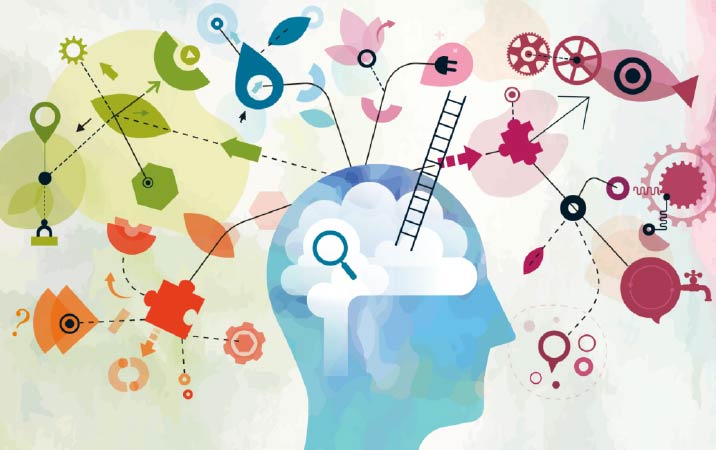he capacity for people to learn and grow is nearly limitless. The human body can adapt to harsh environments, and the brain can learn, adapt, and reimagine a world of infinite possibilities. Despite these capabilities, students are underutilizing one of their most basic capacities: the ability to learn. Many students are failing to learn because the field of education needs to rethink how students learn. This isn’t to say educators failed. If you are fortunate enough to observe educators, you have certainly come across many talented people who shape minds like artists shape clay.
The fault is not in educators, and it isn’t the field of education. Education, as an institution, continues to reach learners far and wide. It educates people who would not have had the experience to learn a generation ago. Technology, school infrastructure, and student experiences continue to increase the educational experience for countless learners. If it isn’t educators or the field of education going down the wrong path, what exactly is failing?
Wrong approach
The psychology of education is defective. Can you name every college class you took in college? Can you remember the names of those instructors who taught those classes? And most importantly, can you remember half or even a quarter of all the content within those courses? The average mind cannot retain all of that information. Some enlightened observers might even say that it is the practice, utilization, and execution of information that matters – not the rote memorization. Correct – people tend to retain information better when they are active participants in learning. However, this observation is only halfway to the educational promise land.
The real defect in education is relevancy. Lessons are taught to pack information into presentation slides, books, and learning management systems. The very concept of a learning management system alludes to information that needs to be managed and not learned or experienced. The world is becoming exponentially technical, as is our thinking of how students learn.
Every year more applications are created and utilized to help students collaborate and be assessed. These apps may function as well as intended, but this is a technical application to learning. There is something far more potent than technical applications to learning: meaning.
Memory
The mind learns and remembers through a process of encoding, storing, and retrieving. Encoding refers to absorbing the information while retrieving refers to bringing what was learned to light. Applications can help raise awareness with the encoding process, and there are apps to help students retrieve what was learned. Information that is not stored is like emptying water from a sinking boat. Greater care to how lessons are stored is incredibly essential to learning lessons for a lifetime. Storing the information through semantic or meaningful ways is the Rosetta Stone of learning.
When educators instruct lessons in a meaningful way, students learn memorable information. Nearly everything that is instructed ought to be delivered in a way that provides meaning. When a lesson is crafted in a meaningful way for students, they buy into the lesson. Relevancy is the only thing that will keep a student’s attention. Fortunately, people are naturally good at teaching with relevancy.
Humans have created relevancy for thousands of years. The Lascaux cave paintings dating back to nearly 17 years ago told stories on the wall. The ancient Egyptians used hieroglyphics, and modern society uses emojis. Stories are the paint to an educator’s canvas.
Meaningfulness
Cost analysis between information and the time it takes to deliver it is an ever-present challenge for the practice educator. Often, educators are left with a dichotomy to teach in breadth (a lot of information) or depth (less information but more nuanced). These learning avenues still fail to recognize that the brain will not retain this information long-term if it is not meaningfully applied. Teaching with a focus on breadth or depth will be determined by many factors, including content, school, time in class, and instructor teaching style. Teaching this way doesn’t have to change. There should be an additive formulation of our teaching. Teach with breadth + meaningfulness or depth + meaningfulness. I challenge educators to be bold and recognize that a lesson not crafted in a meaningful way is best left to books or reference material.
If we are truthful about education, we can recognize that many students fail to remember lessons throughout the semester, let alone months and years into the future. Too often, students will say they don’t remember what was learned earlier in the semester. This is a problem that isn’t given enough attention. But there is hope in how we teach and how students learn.
Think back to some of the most meaningful events over the last few centuries. Most of us don’t remember the exact number of minorities who lived in poverty during the civil rights era. We remember stories like when Dr. Martin Luther King Jr. gave a powerful speech on the steps of the Lincoln memorial. We don’t remember the exact number of soldiers who died in World War II, but we remember the images of those brave men who stormed the beaches in France.
Lifelong learning should be lessons learned for a lifetime. Educators have an opportunity to rethink how students learn. Students can learn a lot, a little, or in meaningful ways. Every lesson should be mindful of the “so what?” question. In other words, why is this information important? I think many of us forget this simple lesson. This is our reminder. Reimagining how we teach and how students learn will make all the difference between education as a job and teaching as an art.
Sam Buemi has taught in various school settings over the past 15 years, teaching sociology and psychology courses. Additionally, Dr. Buemi coaches students and working professionals through various workshops in personal development. He actively writes in his blog, SamBuemi.com, and has a book on motivational psychology coming out in spring 2021.
Courtesy – Faculty Focus
